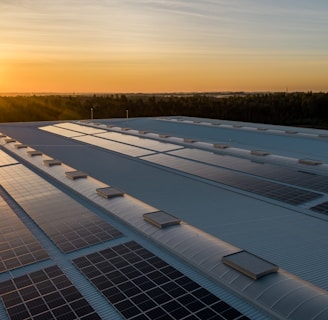10 Tips to Improve the Energy Efficiency of Your Home in 2024
Discover 10 actionable tips to boost your home's energy efficiency in 2024! From simple DIY projects to smart technology upgrades, learn how to lower your energy bills and reduce your carbon footprint. Don't miss out on these valuable strategies to create a more sustainable and comfortable living space. Read now and start saving energy today!


How to improve energy efficiency?
Improving the energy efficiency of your home not only helps to reduce your carbon footprint, but it can also save you money on your energy bills. With advancements in technology and a growing focus on sustainability, there are now more options than ever to make your home more energy efficient. In this article, we will provide you with 10 tips on how to improve the energy efficiency of your home in 2024.
1. Upgrade to LED Lighting
One of the easiest and most cost-effective ways to improve energy efficiency is by upgrading your lighting to LED bulbs. LED bulbs use significantly less energy than traditional incandescent bulbs and have a much longer lifespan. By making this simple switch, you can reduce your energy consumption and save money on replacement bulbs.
2. Install a Smart Thermostat
A smart thermostat allows you to control the temperature of your home remotely and create customized heating and cooling schedules. By optimizing your HVAC system's energy usage, you can reduce your energy consumption and lower your utility bills. Some smart thermostats even have features that learn your preferences and adjust settings accordingly.
3. Improve Insulation
Poor insulation can lead to significant energy loss. By properly insulating your home, you can prevent drafts and keep the temperature more stable. This will reduce the strain on your HVAC system and help to lower your energy usage. Consider adding insulation to your attic, walls, and windows for maximum efficiency.
4. Upgrade to Energy-Efficient Appliances
Older appliances tend to be less energy efficient. Consider upgrading to energy-efficient models that have the ENERGY STAR label. These appliances are designed to use less energy without sacrificing performance. Look for energy-efficient options when it's time to replace your refrigerator, dishwasher, washing machine, and other major appliances.
5. Seal Air Leaks
Air leaks can significantly impact the energy efficiency of your home. Check for gaps and cracks around windows, doors, and vents, and seal them properly. This will prevent cold air from entering in the winter and hot air from infiltrating in the summer, reducing the need for excessive heating or cooling.
6. Utilize Natural Lighting
Maximize the use of natural lighting in your home to reduce the need for artificial lighting during the day. Open curtains and blinds to let in sunlight, and consider installing skylights or larger windows in rooms that lack natural light. This not only saves energy but also improves the overall ambiance of your living space.
7. Install Solar Panels
Solar panels are a long-term investment that can significantly reduce your reliance on traditional energy sources. By harnessing the power of the sun, you can generate your own electricity and potentially even sell excess energy back to the grid. Consult with a professional to determine the feasibility and cost-effectiveness of installing solar panels in your home.
8. Use Energy-Efficient Window Treatments
Window treatments such as blinds, curtains, and shades can help to regulate the temperature in your home. Choose energy-efficient options that provide insulation and prevent heat transfer. In the summer, close them during the hottest parts of the day to keep your home cool, and in the winter, open them to allow sunlight in for natural warmth.
9. Optimize Water Heating
Water heating accounts for a significant portion of a household's energy consumption. Lower the temperature of your water heater to 120 degrees Fahrenheit (49 degrees Celsius) and insulate the hot water pipes to prevent heat loss. Consider installing a tankless water heater, which only heats water as needed, providing energy savings.
10. Educate Yourself and Your Family
Lastly, educate yourself and your family members about energy-efficient habits and practices. Encourage everyone to turn off lights and appliances when not in use, unplug electronics that are not in use, and use energy-saving settings on devices. Small changes in behavior can make a big difference in overall energy efficiency.
Conclusion
Improving the energy efficiency of your home is a worthwhile investment that benefits both the environment and your wallet. By implementing these 10 tips, you can reduce your energy consumption, lower your utility bills, and contribute to a more sustainable future.


